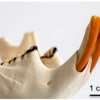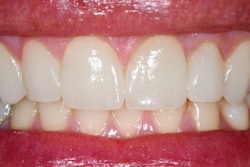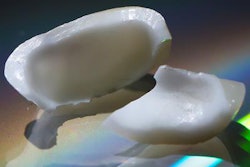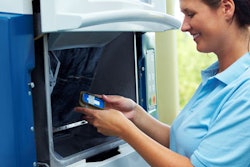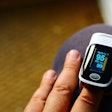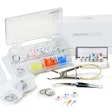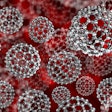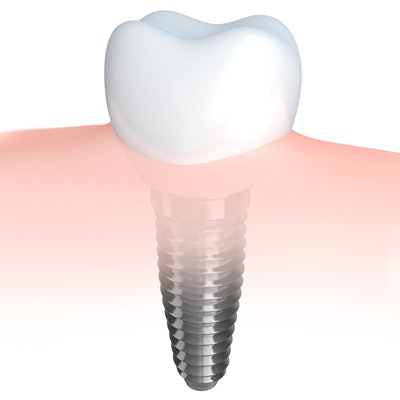
A zirconia implant looks better, but research has yet to show that it is a suitable alternative to dental fixtures made with titanium, according to a review published in Dental Materials on September 6.
Though zirconia remains a versatile material for implant prosthodontic applications, more long-term, multicenter studies must be conducted to better evaluate its advantages over titanium, the author noted.
"No clear superiority has been documented in biocompatibility, osteoconductivity, physical properties, or allergenicity with zirconia implants compared with titanium, notwithstanding an esthetic benefit," wrote author Steven Sadowsky, DDS, a professor and the director of implant education in the department of preventive and restorative dentistry at the University of the Pacific Arthur A. Dugoni School of Dentistry in San Francisco.
The review aimed to offer a thorough look at studies published between 2007 and 2019 that evaluated the use of zirconia in implant prosthodontics and followed patients for at least one year. It examined studies that used zirconia as a replacement material for titanium implants, titanium abutments, implant-supported metal-ceramic restorations, and complete arch resin-metal prostheses.
Some of the review's key findings included the following:
- Zirconia abutments with titanium bases revealed high survival rates and showed no difference to metal after a mean observation of between five and seven years.
- Bilayered zirconia ceramic restorations are a valid treatment alternative to metal ceramic implant restorations for use with single crowns with similar biological complications and enhanced aesthetics.
- With further studies, monolithic zirconia restorations may be able to address the chipping incidence of bilayered ceramic restorations. They also must become more aesthetically appealing.
- Reduced lab costs
- Superior durability and wear characteristics
- Enhanced fit due to digital fabrication
- Reduced plaque and biofilm accumulation
- Acrylic try-ins for adjustment and approval
Additionally, in medium-term studies, gingival feldspathic porcelain veneered monolithic zirconia complete arch prosthesis offered a high survival rate and low mechanical complication rate when compared with a resin metal prosthesis, the author noted. Other advantages of a zirconia prosthesis included the following:
Despite these advantages, a dentist who wants to achieve high rates of success must thoroughly plan and choose appropriate patients to use this technique-sensitive design method, the author wrote. Furthermore, evidence has shown that a gingival feldspathic porcelain veneered monolithic zirconia complete arch prosthesis is difficult to adjust and polish and is impossible to repair.
"Continual improvements in the design of zirconia implants, as well as the strength of zirconia implant abutments and the aesthetics of monolithic zirconia, coupled with more longitudinal randomized controlled studies will advance a broader application of zirconia in implant prosthodontics," Dr. Sadowsky concluded.

